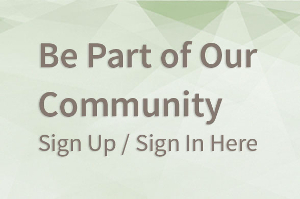BK Blog Post
The One Word That Is Making Your Political Arguments Way Harder than They Need to Be
 Posted by
Anna Leinberger,
Editorial Manager, Acqusitions,
Berrett-Koehler Publishers Inc.
Posted by
Anna Leinberger,
Editorial Manager, Acqusitions,
Berrett-Koehler Publishers Inc.
Anna is a writer and editor for Berrett-Koehler in Oakland, CA. More on killer book proposals and writing can be found on her BK Blog.
The Pen Is Mightier Than the Sword
Powerful speech can move people in a way that threats do not, which is generally the established meaning of the above saying. However, the implications are much farther-reaching and can even be quite concrete. Small words have power too, words we don’t event think about when crafting a sentence. The small words can have more impact than the most perfectly chosen adjective, the most precise verb for the occasion.
AND Cultures
The culture of “yes, and?” is one that runs through the corporate training world. And is a generative term that asks for more. But, it is the counterpart of “and” that titles this piece- the word that will stop a conversation in a second (hint: I just used it!): BUT. But is such a small word, it is not usually thought of. We use it when we feel we need to, and interestingly, BUT does different things depending on whether you are using it or whether you are hearing it. The power of BUT is that it completely negates anything that comes before it.
“I like sandwiches but I prefer salads.”
“I want to go to the store, but I have to clean the house first”
These are benign examples of BUT- in both sentences the second half of the sentence is clearly the point. Going to the store and eating sandwiches really don’t matter because the important parts of the sentences have to do with cleaning the house and eating salads. BUT has more powerful implications though, particularly in political discussions:
“I agree with your point, but I think that __________”
And here is where BUT shows its real colors. There is almost nothing that can come after that BUT that does not, in some way, disagree with the statement preceding it.
Be careful how you use it
Ironically, when you use BUT the intent is often actually to partly validate what comes before. Unfortunately, the person who hears BUT applied to their opinion usually hears the invalidation rather than the validation. In communication, intent is only half the battle. BUT is a powerful word where there is frequently confusion amongst the intent and how it comes across. The simple step of choosing not to say BUT can have profound effects on a conversation, and replacing BUT with AND can be even more powerful. When you want to validate someone’s position, try separating the validation and your own opinion, rather than connecting them with the word BUT. The coming election cycle is bound to be fraught with incivility, arguments, and debate. The simple change of a BUT for an and, or even a slight adjustment of the sentence structure to leave it out could have long reaching effects.





